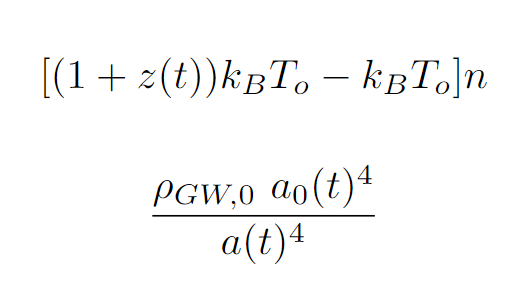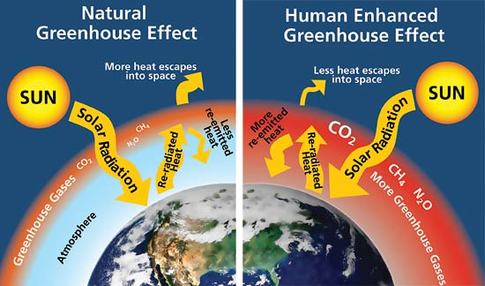The question of whether energy is conserved on cosmological scales is one that captivates both physicists and philosophers, illuminating the convoluted tapestry of the universe and our understanding of fundamental laws. To comprehend this conundrum, one must first unravel the established principles that govern energy conservation in classical mechanics and subsequently explore the peculiarities inherent in the vast expanse of cosmology.
Traditionally, the law of conservation of energy asserts that energy cannot be created or destroyed; it can only change forms. In classical physics, this principle is elegantly straightforward. For instance, in a closed system, kinetic energy may convert to potential energy and vice versa, yet the total amount remains constant. However, when we explore the cosmos, the application of this principle becomes profoundly complex.
At the cosmic scale, classical definitions of energy must be reassessed. The universe is not a static entity but rather a dynamic and evolving one, characterized by expansion, curvature, and the influence of gravity. The most compelling challenges to energy conservation arise from the burgeoning field of cosmology, particularly in the framework of general relativity. Here, the geometry of spacetime itself plays a critical role, adding layers of complexity that starkly diverge from Newtonian mechanics.
The expansion of the universe poses a fascinating paradox. As galaxies recede from one another, one might intuitively presume that the energy contained within the universe dissipates. However, thanks to phenomena such as redshift and dark energy, we find that energy manifests in ways that diverge from conventional expectations. When light from distant galaxies experiences redshift due to the expansion of the universe, it seems to lose energy. In this scenario, a photon emitted from a galaxy appears less energetic as it travels through an ever-expanding space, suggesting energy loss. Yet, this viewpoint leads to the crucial inquiry: where does this energy go?
One pivotal explanation lies in the concept of a non-conservative system. In a cosmological context, the universe is not closed but open to the influences of dark energy, a mysterious force propelling its accelerated expansion. While this energy does not conform to traditional forms that can be easily quantified, it represents an integral part of the cosmic fabric, challenging our preconceived notions of energy’s permanence. As the universe expands, dark energy occupies the voids created by this expansion, contributing to a rise in total energy density, which paradoxically suggests that energy may indeed increase in this extensive arena.
Moreover, the principles of thermodynamics and the notion of entropy must be woven into this discussion. In any isolated system, the total entropy tends to increase, leading to the conclusion that energy transformations invariably align with thermodynamic laws. The universe fulfills these laws, slowly evolving toward a state of thermodynamic equilibrium. However, this inevitability raises further questions about energy conservation at the scales of the universe’s lifespan. As matter transitions into energy through processes like fusion, the ultimate fate of the universe—whether it evolves into a ‘Big Freeze,’ ‘Big Crunch,’ or ‘Big Rip’—will dictate how energy is preserved or dissipated.
Another layer of complexity arises when considering gravitational energy. In general relativity, gravitational fields can store energy, rendering them significant actors in the cosmic drama. Waves emitted from binary black hole systems, gravitational lensing, and the intergalactic medium all contribute to the rich fabric of gravitational energy that exists throughout the universe. While these forms of energy interact and evolve, they introduce additional challenges in quantifying energy conservation across vast distances and voids.
Intriguingly, the implications of energy conservation in cosmology extend to philosophical realms, igniting debates about the nature of reality itself. If energy can neither be fully accounted for nor reliably conserved in traditional manners, what does it mean for our understanding of existence? Some theorists explore multiverse hypotheses, presuming that energy conservation principles might manifest differently in separate universes or dimensions. This multitude of scenarios catalyzes a broader fascination with how we conceptualize energy itself, potentially reshaping the contours of physical laws as we seek to understand existence on a grander scale.
Furthermore, the pursuit of understanding energy management at cosmic scales enriches the interdisciplinary dialogue between the natural sciences and environmental stewardship. As humanity grapples with challenges posed by energy consumption, sustainable practices hinge on the foundational understandings gleaned from cosmological physics. By exploring the boundless dimensions of energy as expressed in the universe, scientists may derive insights applicable to our terrestrial challenges.
In summation, the question of whether energy is conserved on cosmological scales intertwines complex physics with profound implications for humanity. The interplay of general relativity, dark energy, thermodynamic principles, and gravitational dynamics crafts a narrative that challenges our foundational beliefs. As the universe expands, shedding light on long-held tenets of energy conservation, it simultaneously illuminates diverse pathways for contemporary energy discourse. This intricate dance of ideas may lead us not only to deeper cosmic comprehension but also to more sustainable methods of inhabiting our shared world.








